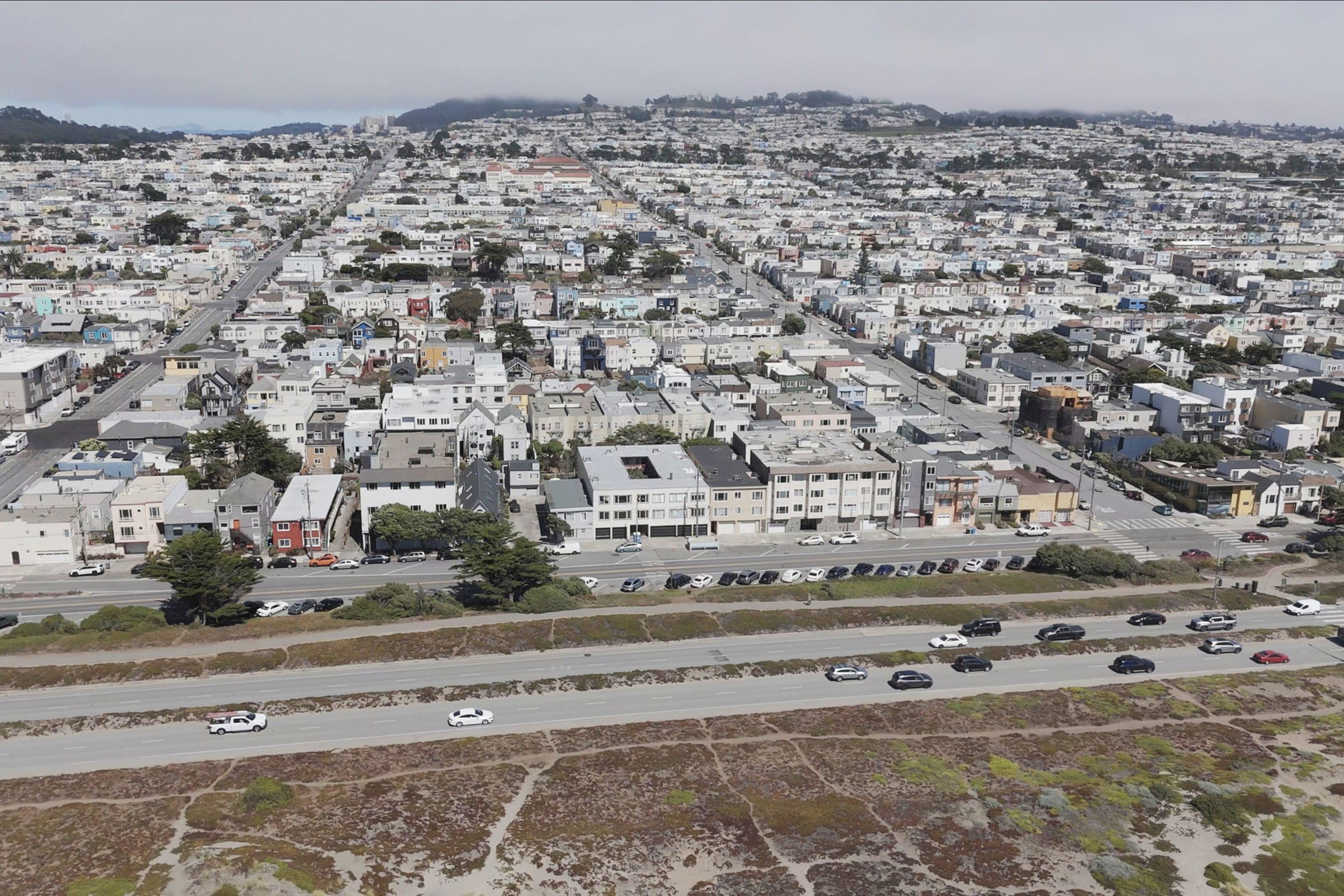Almost two months after voters approved Proposition K’s planned closure of a section of the Great Highway, the fallout continues to spread. The vote made one thing clear: Prop. K has widened the divide between single-issue ideologues and the pragmatic needs of the city’s moderate majority.
Centrist supervisor candidates lost in two critical races because they were erroneously linked to Prop. K. Those losses set back the expected moderate sweep of the board and ensured that incoming Mayor Daniel Lurie will not inherit a reliable group of like-minded politicians primed to collaborate with him to tackle the city’s challenges. Instead, he faces a divided board that’s more likely to stymie the kind of progress he hopes to make.
Some context is in order. The principal advocates for Prop. K — Mayor London Breed, state Sen. Scott Wiener, Supervisor Joel Engardio, and pressure groups like Abundant SF — pushed through a measure that lacked a concrete plan or budget. The abandonment of a previously negotiated (opens in new tab) pilot program — a healthy compromise between commuters and recreational users — was emblematic of the backdoor City Hall dealings that has wearied many San Franciscans.
Instead of addressing the pocketbook concerns of west-side residents, who depend on the Great Highway, the power brokers behind Prop. K have widened the chasm between them and the broader San Francisco community. Major donors to the “Yes on K” committee included Jeremy Stoppelman, Emmett Shear, and Laura Yakovenko (opens in new tab) — wealthy individuals who seem to favor an occasional stroll along the shore at the expense of the working- and middle-class and Asian American communities (opens in new tab) on the west side, who shuttle kids between activities or commute to jobs not served by public transit.
The issues that motivate many of these west-side voters are not the same as those of others in the city. In the Richmond, centrist candidate Marjan Philhour had Prop. K stapled to her back by District 1 incumbent Connie Chan. Philhour never endorsed Prop. K (opens in new tab), but the mere association with its most zealous anti-car backers torpedoed her campaign.
Similarly, in District 11, Michael Lai’s sensible centrist policies couldn’t overcome the backlash against Prop. K and its supporters. He lost by just 198 votes to Chyanne Chen, whose views lie far to the left of Lurie’s. Lai’s defeat in a car-centric district underscores the deep resentment that Prop. K stirred among voters.
Engardio’s alignment with single-issue groups like Abundant SF, SFYIMBY, and the San Francisco Bicycle Coalition — and particularly his support for Prop. K — has left him vulnerable to a growing recall effort and facing an uphill battle for reelection in 2026. This miscalculation has distracted from the real issues that center-leaning, so-called “moderates” need to address and has jeopardized the progress we have fought so hard to achieve.
A centrist dream deferred
This election should have been a centrist triumph. Instead, the defeat of Philhour, Lai, and, potentially, Engardio, highlights how Prop. K has become a symbol of the disconnect between San Francisco’s transportation and climate ideologues and the pragmatic needs of politically moderate voters.
This debacle stands in stark contrast to other election outcomes. Much of San Francisco turned its back on far-left candidates: Democratic Socialist Supervisor Dean Preston lost not just his district but his home precinct, and Supervisor Aaron Peskin’s dismal 22% first-round showing in the mayoral race was the worst performance by a leftist candidate in more than 30 years. The city overwhelmingly passed Proposition 36, reinstating stricter penalties for theft and drug crimes, and rejected the progressive agenda to extend rent control through Proposition 33.
The national stage mirrors this dynamic. At every level, Democrats are grappling with a perception that they’ve become out of touch with working-class and minority communities. As President Barack Obama recently warned, “Purity tests are not a recipe for long-term success.” Prop. K is San Francisco’s glaring example: a pet project of wealthy individuals and out-of-touch environmental and public-transit advocates that alienated a sizable majority of people who live on the doorstep of the new “park.”
It’s disheartening that many urbanist, YIMBY-aligned politicians chose to block their ears to the howls of dissent on the west side. Their single-minded devotion to Prop. K could jeopardize their principal goals: affordable rents and more starter homes for working and middle-income San Franciscans. They have alienated the very people whose support they need to realize their grander aspirations.
Worse, their fixation on a two-mile stretch of the Great Highway has distracted from the bread-and-butter issues that matter most to the vast majority of San Franciscans: public safety, education, jobs, homelessness, the drug crisis, downtown recovery, and a streamlined bureaucracy.
The dogmatic zealotry of Prop. K advocates has cost Lurie the solidly centrist board of supervisors he so richly deserves. Instead, they have gifted him a poisoned chalice, jeopardizing a moderate coalition’s hard-won progress and the city’s recovery.
Cyrus Sanandaji is the managing principal and founder of Presidio Bay Ventures.


